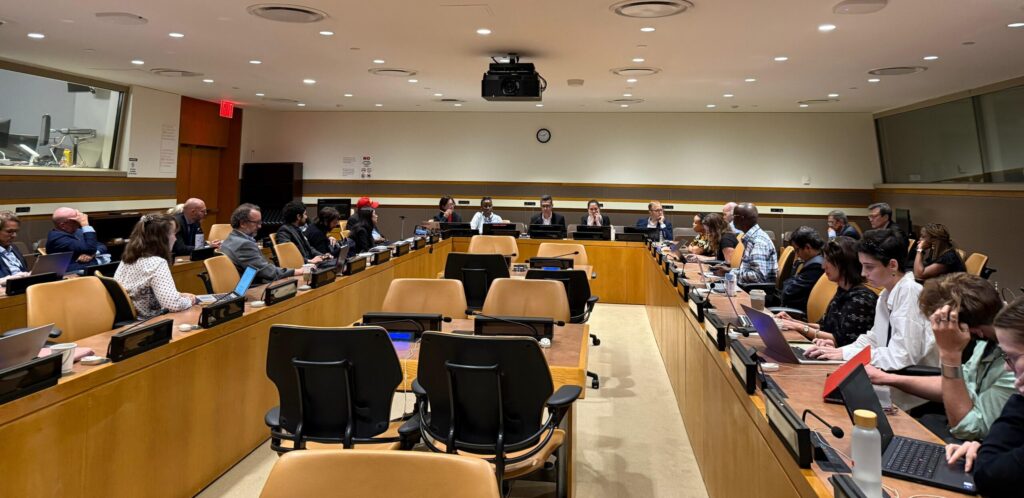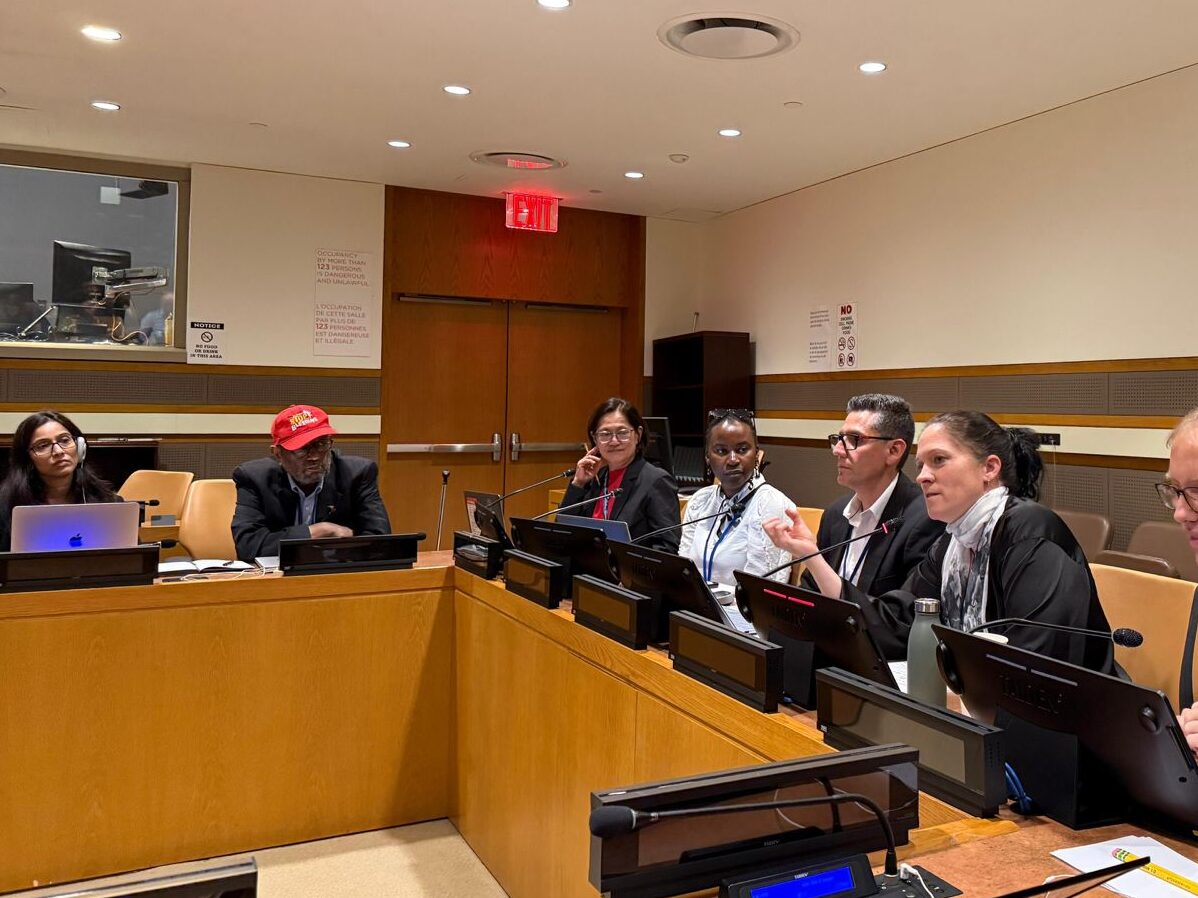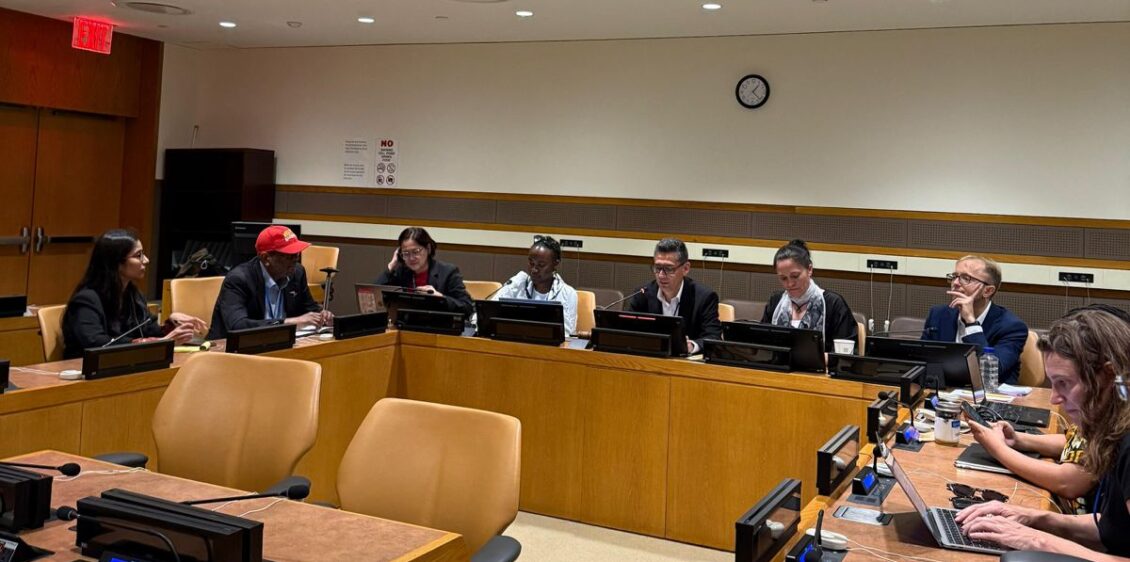Civil Society Views on State of Play and Next Steps
From August 11 – 15, UN Member States, civil society, and other stakeholders gathered at the UN headquarters in New York for the second session of the negotiations for a UN Framework Convention on International Tax Cooperation (UN Tax Convention). Civil society, under the Global Alliance for Tax Justice (GATJ) and the Civil Society Financing for Development (CS FfD) Mechanism, organised a side event during the negotiations to bring together delegates and stakeholders for an important exchange.
The UN Tax Convention negotiations are a historic opportunity: from now until mid-2027 states will negotiate a legally-binding global tax treaty, the first time that all states can gather on an equal footing to develop global tax rules.
“The global tax architecture continues to maintain high levels of opacity, reducing the ability of governments, particularly in the Global South, to collect tax revenues thus hindering countries’ ability to finance essential public services such as education, health care, and infrastructure,” introduced Luis Moreno, Chair of GATJ.
A global tax treaty is urgently needed to rewrite the global tax rules. The current rules, developed at a time when many countries did not have political independence, fail to address rampant tax abuse by multinationals and the rich, preventing countries from collecting adequate tax revenues and resulting in a deepening of inequalities, both within and between countries.
“The UN Tax Convention plays a crucial role in designing an architecture that works for all countries, particularly developing countries who are the hardest hit by the current broken system,” expanded Moreno.
The Failed Transfer Pricing System

The panelists and attendees, including delegates and other stakeholders, at the civil society side event.
In discussions across all three Workstreams: on the Framework Convention, first early protocol on taxation of digital services and the second early protocol on dispute prevention and resolution, respectively, reforming the corporate tax system has been a key discussion for civil society. The corporate tax system, which relies upon transfer pricing and arm’s length principle, has resulted in profit shifting as multinationals attempt to avoid taxes as well as a deeply unfair allocation of taxing rights.
“We are here with the historic opportunity to imagine a different tax system that can work better. The current transfer pricing system with the arm’s length principle is not working. We need unitary taxation with formulary apportionment,” shared Henrique Alencar, Oxfam.
Taxation for Sustainable Development
The mandate for the UN Tax Convention, the Terms of Reference, sets out the treaty to create a tax system for sustainable development in all its forms: social, economic, and environmental. Civil society shared the importance of effective taxation to advance sustainable development from gender equality to the environment.
“Taxation, through progressive tax systems and inclusive international tax cooperation, is one of the keys to achieving the Sustainable Development Goals that all of our countries have committed to meet. Progressive tax systems specifically are fundamental to addressing inequalities and lie at the heart of the call for tax and gender justice,” Jeannie Manipon, Tax and Fiscal Justice Asia, a member of the Global Alliance for Tax Justice.
In the FfD4 outcome document, the Compromiso de Sevilla, UN Member States adopted non-binding language supporting gender-responsive tax systems as well as progressive taxation. Speakers shared the importance of bringing this agreed text to the legally-binding UN Tax Convention.
Speakers also highlighted the critical link between taxation and sustainable development from an environmental perspective. Jeannie Manipon added, “The polluter pays principle should anchor our advocacy and work for tax justice.”
“As the Africa Group has made clear, we need the effective taxation of the extractive industry. This is not only a technical issue; it is a human rights issue, a climate justice issue, and a sustainable development issue,” shared Lutangu Daisy Mwilma, Norwegian Church Aid. “Most of the illicit financial flows bleeding out of Africa are from the extractives sector. It is not a capacity issue. The system does not work for us to tax effectively. We need to come up with a system that works for everyone.”
Towards a Progressive, Effective, Sustainable, Inclusive, and Transparent UN Tax Convention

Tove Maria Ryding speaking on the panel.
Having the UN Tax Convention is historic as it allows countries to better link taxation to agreements made at the UN. “We need financing for public services, development, human rights, and gender equality. Taxation is a core part of this. The UN Tax Convention must link to existing commitments, made here in the UN. In the UN Tax Convention, we need to create a coherent tax system through having a robust Framework Convention with future decisions to be made at the Conference of the Parties,” shared Tove Maria Ryding, the European Network on Debt and Development.
The side event, which brought together civil society and delegates, highlighted the significance of the UN Tax Convention as a deeply political treaty with far-reaching impacts. In her closing remarks, Jeannie Manipon shared, “We call on our negotiators to deliver an ambitious UN Tax Convention, one that can ultimately be a life-changing instrument to harness international tax cooperation to achieve sustainable dimensions in all its dimensions, and moves towards ending inequalities within and between countries.”
_
Watch the full side event on UN Web TV here.
